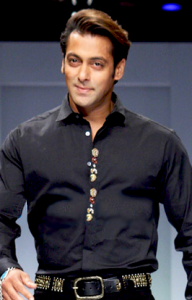Why The Shape Of A Company’s Logo Matters
Think about the iconic brand names you know: Apple, Target, McDonald’s, Gap. What images come to mind? For many of us, probably their logos. That’s because whether it’s an apple or big golden arches, a logo is crucial to a company’s identity. Now, new research says that logos are even more important than businesses and consumers realize. A recent study in the Journal of Consumer Research found that even just a basic element of logos—their shape—affects how people perceive a company and its products.
Don’t just come up with a new logo, research it first!
The new Airbnb logo has stirred up a veritable hornets nest. Gizmodo yesterday wrote that “The New Airbnb Logo Is a Sexual Rorschach Test For Our Time”! And the BBC today reported that “Airbnb’s new logo faces social media backlash”.
 Airbnb new logo on left and spoofs of it to the right!
Airbnb new logo on left and spoofs of it to the right!
This is not the first time that a company has goofed up when renovating or changing its logo. Some years ago, GAP attempted to change to a new logo but abandoned the effort when its new logo met with a fast and furious backlash on both Twitter and Facebook.
It surprises me no end that companies do not seem to recognize the profound influence that logos can have. For instance, even its shape can influence consumer judgments of the physical characteristics of the brand.
As an example, our research shows that angular logos lead consumers to make inferences about the hardness (inflexibility for services) and durability of the product or service associated with the logo. Rounded logos, however, lead consumers to infer that associated products or services are soft (customer responsive for services) and comfortable.
So, to all the companies contemplating refurbishing or changing their logo, please do your homework. Ask consumers what they associate with the new logo, whether they like it,… Going with internal opinions is like playing Russian roulette.
What makes companies continue to use Salman Khan as a spokesperson/brand ambassador???
For the last twelve years the case against Bollywood actor Salman Khan, for driving his SUV while drunk and ploughing into five homeless people who were sleeping on the street, killing one and seriously injuring the other four, has been winding through the Indian courts. Importantly, following the event the actor did not turn himself over to the police for eight hours, and is on record saying he was not the driver when the incident occurred, although recently in the Mumbai court proceedings two witnesses have come forward to say that he was in fact the driver of the car and not his bodyguard who claimed to have been the driver, originally.

Why am I talking about this incident? The reason is that Salman Khan continues to act in numerous movies, continues to be a box office draw, and continues to be the spokesperson (or brand ambassador if you prefer) for numerous domestic and international brands. The last one in particular is striking as large corporates from around the world including Pepsico’s Mountain Dew; Coca Cola’s, Thums Up; Suzuki of Japan; Splash, the Middle East’s largest fashion retailer, as well as India’s Hero Honda, Sangini Jewelry, Yatra.com, and many other brands have contracts with Salman Khan!
To me, this is quite surprising because the brand owners are exposing the brands to risk. Indeed, in most markets around the world, even the hint of impropriety leads companies to drop the spokesperson. For example, following Tiger Woods’ car accident in late 2009 and his acknowledgement of marital infidelity, he was rapidly dropped as the spokesperson for AT&T, Accenture, Gatorade (a Pepsico brand), and Gillette (a P&G brand). Why did these brands drop Tiger Woods? According to one report, shareholders of the sponsoring companies lost between US$5 and 12 billion as a result of the scandal with “Investors in the three sports-related companies – video game maker Electronic Arts, Gatorade and Nike – fared the worst, experiencing a 4.3% drop in stock value.”
Most of us I think would agree that negligent homicide is a more heinous crime to be accused of than marital infidelity. If that is so, why is it that after 12 years, leading companies from India and around the world continue to sponsor Salman Khan? Is it that the local subsidiaries of global companies and Indian corporates are less knowledgeable about the potential consequences of using a scandal tainted spokesperson? Or is it that Indian consumers are so star struck with Bollywood actors that notwithstanding the accusations which look more and more true, they continue to adore the stars? Either way, it raises questions about Indian companies and consumers. I’d like to hear from you as to what you think!



